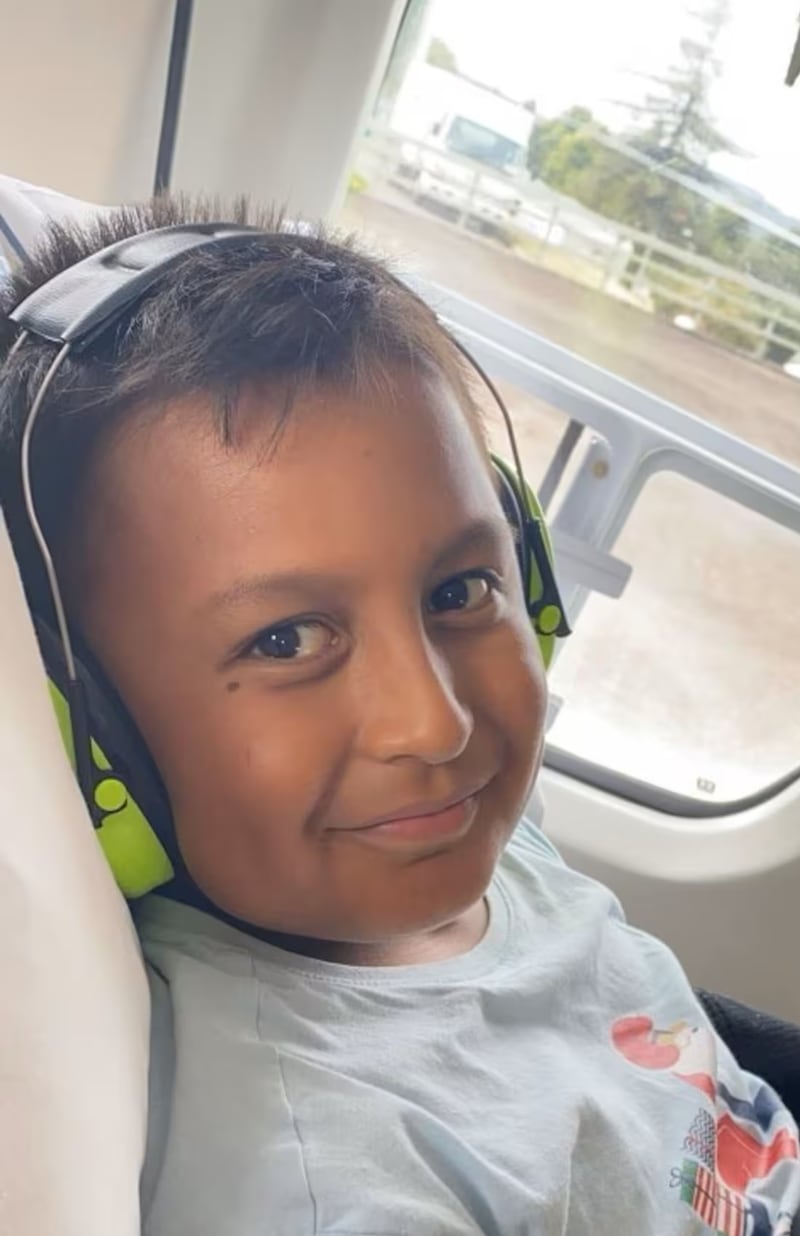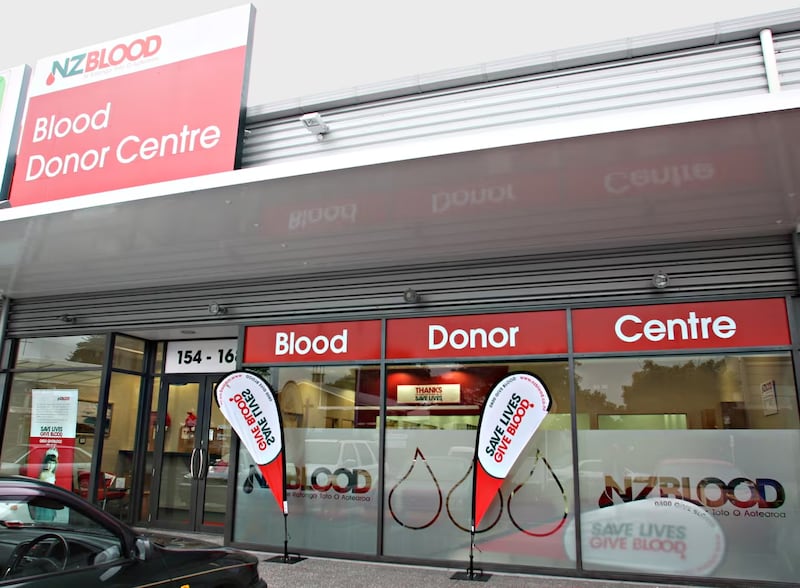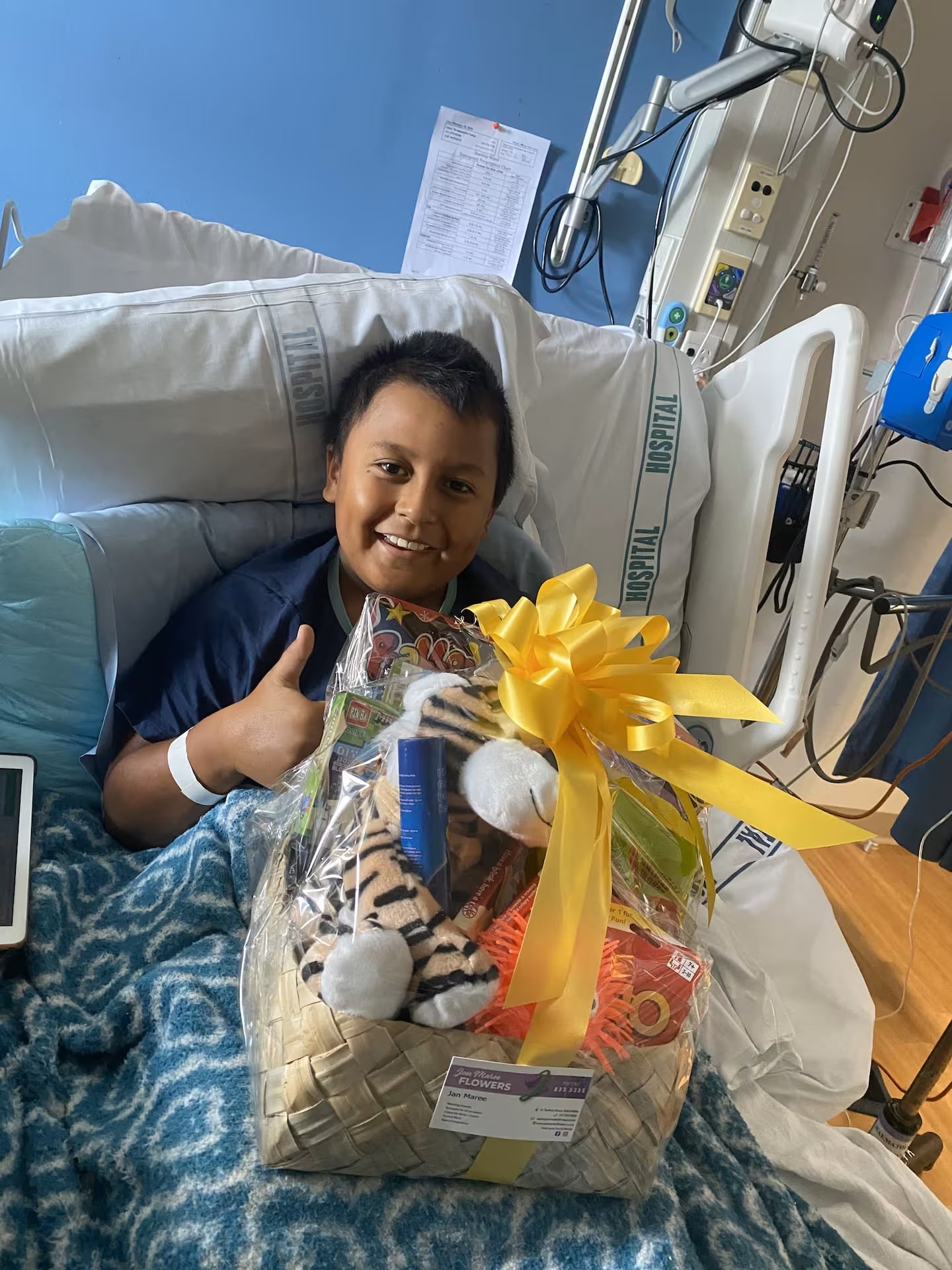Te Waarakihi Hooper Felise is only 9 and has his whole life ahead of him. But his future is in the hands of strangers being prepared to donate bone marrow to save his life.
Te Waarakihi Hooper Felise from Rotorua was a fit, cheeky and happy little boy enjoying life like any other 9-year-old.
But at the start of February this year, he slowly started getting tired.
His mum, Sharene Hooper, noticed he’d get out of breath and hold his chest if they went for a walk.
Then the nose bleeds started and a puzzling cut on his leg didn’t stop bleeding.
On February 18, his symptoms worsened. He was vomiting and random dots appeared on his body.
His family took him to Rotorua Hospital’s emergency department and that night he was flown by rescue helicopter to Starship children’s hospital.
Te Waarakihi was diagnosed with aplastic anaemia, a condition which means his bone marrow has stopped producing red blood cells (cells that carry oxygen around the body), white blood cells (infection-fighting cells) and platelet blood cells (clogging cells).
He has been at the Auckland hospital or Ronald McDonald House for nine weeks since.
The only way he will get better is if he has a bone marrow transplant.
But in a devastating blow, there have been no fully matched bone marrow donors found on the global Bone Marrow Donor Registry.

Given he is of Māori and Pacific Island descent, the donor pool is smaller – reducing the chances of a match further.
Now his family are in a race against time to save Te Waarakihi’s life by encouraging as many Māori and Pacific Island people to donate as quickly as possible.
The family’s anguish
Hooper said it was hard watching her son suffer.
“You just want to take it all away and give it to yourself but you can’t. You have no choice but to deal with it.”
She spends the days entertaining her son and he does school work through Northern Health School when he’s up to it.
His best friend from Otonga Primary School, Ryan, keeps him entertained when he can with Skype conversations.
Te Waarakihi is undergoing special treatment called immunosuppressive therapy, a three-month process that, in essence, largely kills off his immune system to help his bone marrow.
Hooper said the treatment was only 70 per cent effective and it had only been five weeks since Te Waarakihi started it.
“It’s too soon to tell if it’s working.”
He had been looking forward to going home to Rotorua last week but on Friday blood tests revealed a problem with his kidneys and liver so he was re-admitted to Starship.
Hooper said it was likely they would be there a while as they waited for news of a donor.
“If they can’t help my son, we are hoping they might able to save other kids,” she said.
A race against the clock
As every day ticked by, Te Waarakihi’s mother hoped for a miracle.
The 28-year-old has left her job as a skin specialist as the future remained uncertain with how long they would need to be in Auckland.
Even if they could return to Rotorua, she said doctors had told her it was unlikely Te Waarakihi could return to school this year given his immune system was so low.
She urged anyone reading her son’s story to offer to go on the Bone Marrow Donor Registry.
“There is a little boy here who needs your help.”
How you can help
Te Waarakihi’s nanny, Mahara Hooper, told the Rotorua Daily Post she was drumming up awareness as quickly as she could among Pacific Island communities for her grandson.
“He is of Tokelauan and Māori heritage but we desperately need help from any of the Pasifika and Māori communities to try to find a full bone marrow donor for him. We are just doing all we can to find the best match for our little man.”
Donors need to be aged between 18 and 35, meet the eligibility criteria to give a blood donation in New Zealand and willing to donate bone marrow to any patient anywhere in the world.

Bone marrow donation does not involve donating bone. It involves the collection of blood stem cells which grow inside the bone and these can be collected in different ways.
Mahara Hooper said getting on the bone marrow registry was the first step and involved taking a simple swab.
She said she had packs and could forward them to anyone who was willing. She can be contacted on 021 191 3599 or via email hoopshaven@hotmail.com.
More information can be found on the New Zealand Bone Marrow Donor Registry website.
For those who want to help Te Waarakihi but are unable to donate bone marrow, the family has set up a Givealittle page to help with ongoing costs of travel between Rotorua and Auckland and other expenses while Sharene Hooper is unable to return to work.

